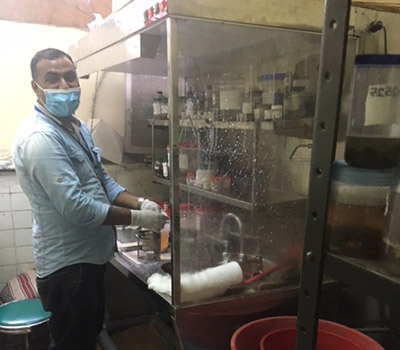Sharing Lab Quality Practices Overseas
Can you imagine working in a lab that has no electronic database and limited technology?
That’s exactly the case in many parts of the world, which is why a subgroup of the American Association for Clinical Chemistry (AACC) traveled to three different countries in Asia this summer to provide training in areas of need.
URMC's Dr. Victoria Zhang leads the Asia Pacific working group, which is part of the AACC's Global Lab Quality initiative. In August, the group of clinical lab professionals delivered two-day workshops in Nepal, Sri Lanka, and the Philippines. The sessions included interactive lectures on laboratory quality specifically designed and targeted to their audiences - many of whom lack basic instrumentation and resources so commonly found in labs across the U.S.
“It is amazing what they can do with what they have,” said Zhang. “They are so excited about the AACC team being there to help. People were so eager to learn and absorb information like a sponge. I was truly humbled by this opportunity to work with a talented team to support this initiative for developing countries.”
The workshops covered topics like assay selection and validation, how to establish and monitor quality control programs, proficiency testing, reference intervals, ISO standards, and total quality management.
The team also visited local hospitals and labs during the tour. The photos shown below were taken during the group’s visit to an academic teaching hospitals at Kathmandu, Nepal.

The specimen management work is very manual.

Test results are entered by hand into the medical tracking book.

The surgical pathology grossing area.

The chemistry lab has one automated analyzer.
Bethany Bushen |
9/28/2018
You may also like